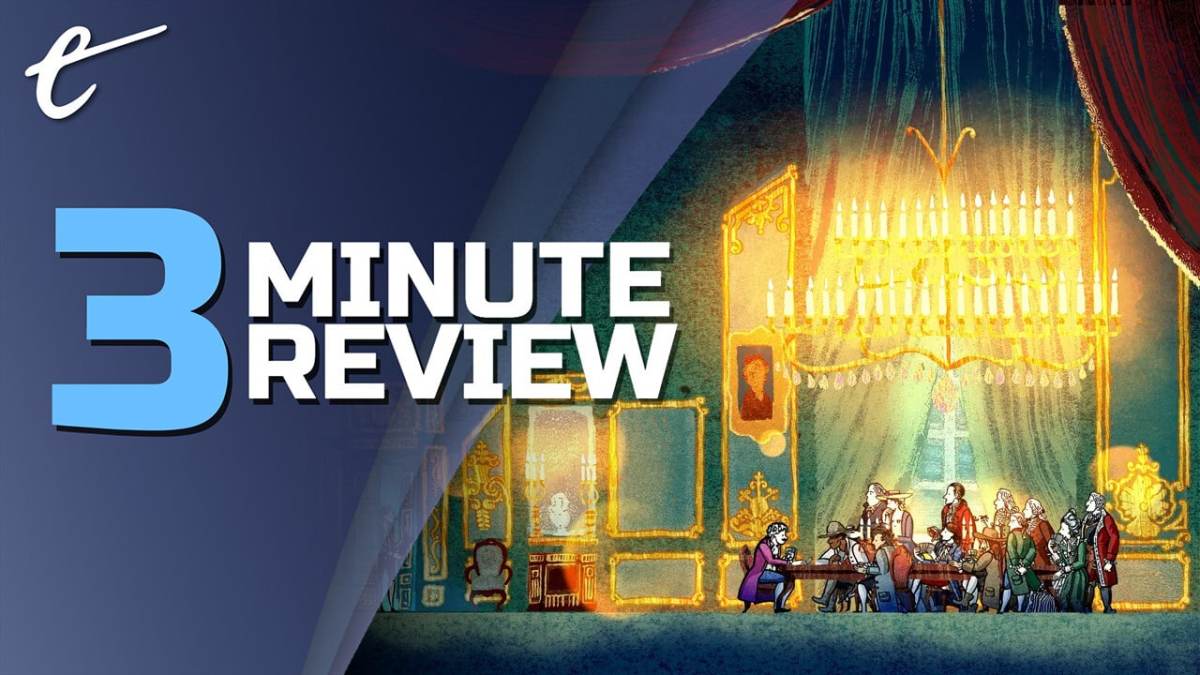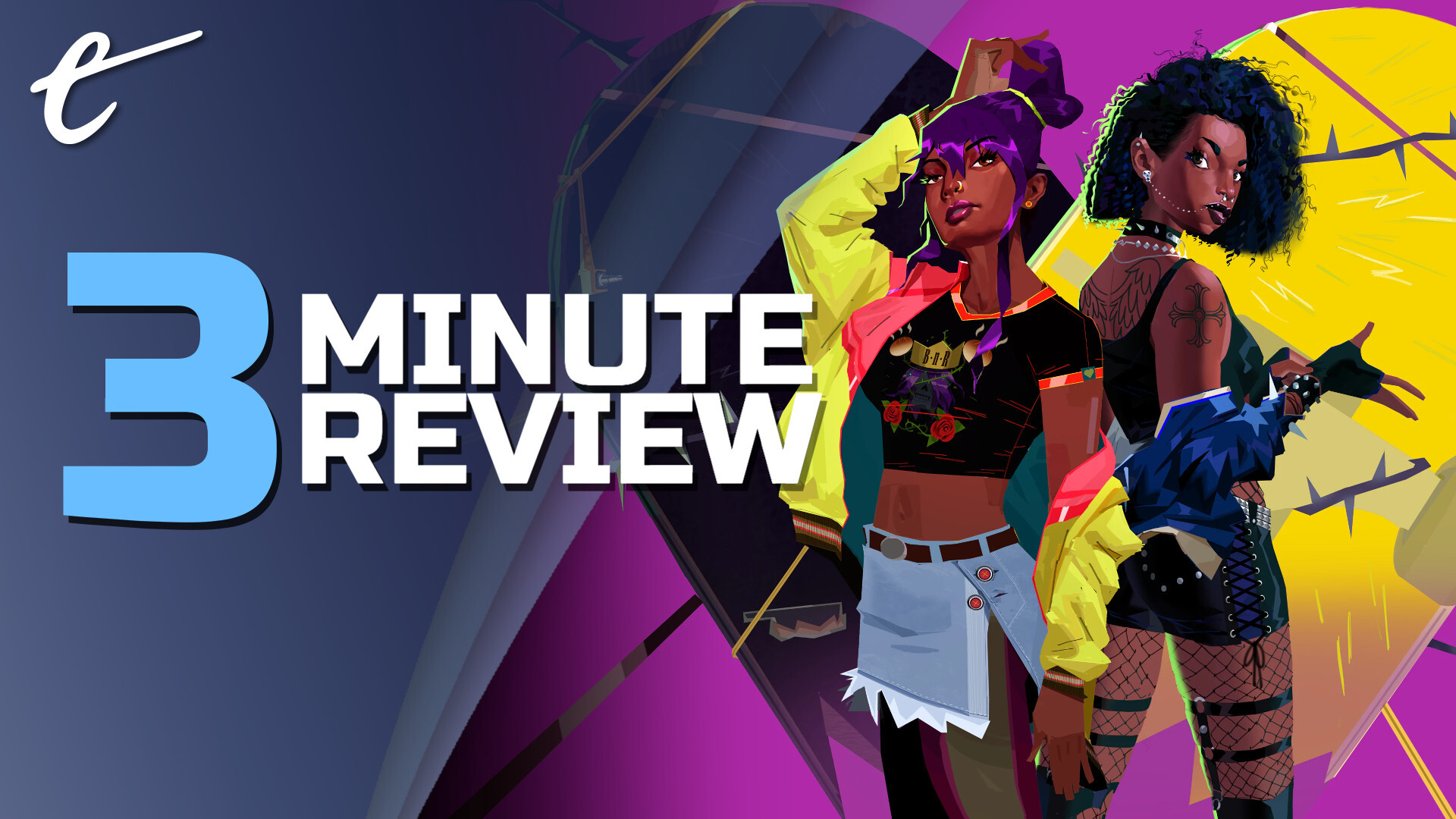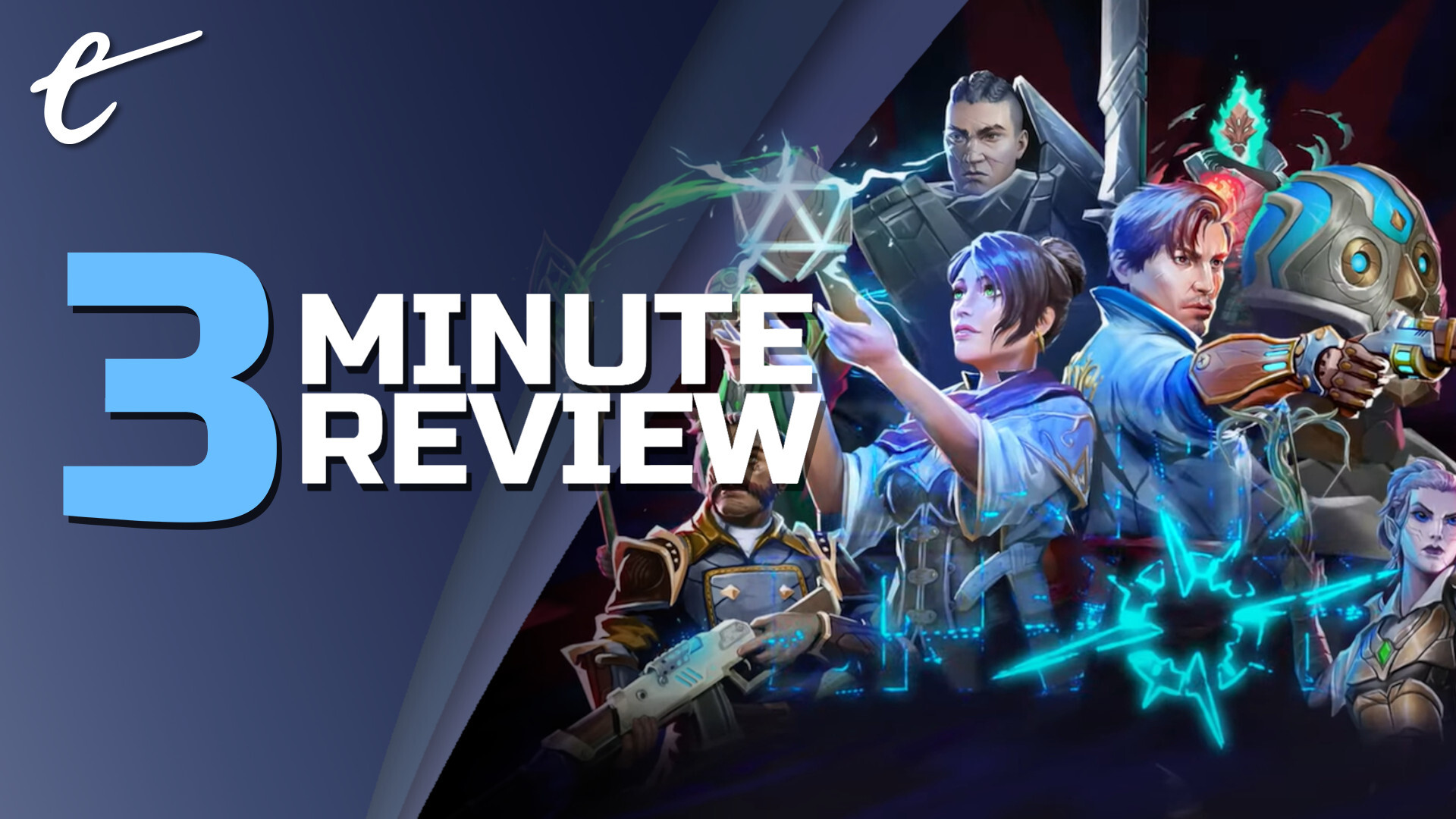Card Shark is a game developed by Nerial and published by Devolver Digital about cheating at cards. You play as Eugene, a young man without a tongue who travels with the Comte de Saint Germain as they cheat nobles out of their money and information about a conspiracy. The core gameplay loop consists of learning a way to cheat at cards, then using it to make a bunch of money or advance the story.
Each cheating strategy uses a mix of card shuffling controlled by the analog stick and quicktime event-style timing minigames. Once your cheating is finished, the round of cards is skipped and you see the inevitable win of a successfully stacked deck — or a loss from accidentally playing fair.
In a way, it’s most similar to games like Cook, Serve, Delicious!; you have to memorize steps for getting a card to a certain place, then execute those steps so you win. Like in those games, you’re also timed, and if you take too long, your playing partners will accuse you of cheating and you’ll have to restart the level.
When you’re winning, the game succeeds at making you feel clever, but some of the most intense moments are when the game throws a puzzle at you. You have a bunch of techniques you already know, and you need to use one to deal with a problem you didn’t expect. For example, the game will teach you to fling cards, which you use in a tense moment to deflect blame for cheating. However, because these moments are puzzles, you are left to either understand and feel smart for saving yourself from a tough situation, or be lost as to what the designer intended and have to do the whole level again, the tension gone.
The edge between failure and success in Card Shark is often a single wrong button press or single forgotten step in a cheat. This can be pretty frustrating because the game is rather slow-paced, and replaying a level can be a few minutes of doing the exact same thing you were already doing over and over.
Exacerbating this, each cheat is just different enough that you’re given a tutorial before every level. The tutorials are necessary but also rather boring, grinding the pace to a halt.
The story plays out between each round of cards and between each location you cheat at, with some clever writing and use of the game’s card systems to enhance the storytelling. However, the game often feels aimless. At the beginning of the game, you’re not aware of the larger plot, and once you become aware, it’s often still not clear why you’re going to a random location that appeared on your map to swindle people.
The art adopts a neat, historical-ish illustrated style, and while the walking animations appear stiff in their overuse and slowness, the detailed hand animations and the lovely painted feel of the characters and world are charming.
The worst thing I can say about Card Shark is that a lot of it felt rote. I had fun at times, but at other times I learned a card trick, performed it mechanically two to four times in a row, won, and only felt a little bored.
The moments when the story takes an unexpected turn or the gameplay allows you to influence the story are engaging, and they show the promise of the game’s fusion of card tricks and intrigue. But those moments were too few and far between to keep me excited. In short sessions, the game is an enjoyable enough mix of memory and execution. But Card Shark’s repetitious nature and floundering momentum keep it from reaching its full potential.
Card Shark is out now on PC and Nintendo Switch for $19.99.
Watch the Review in 3 Minutes for Card Shark.






Published: Jun 17, 2022 01:00 pm